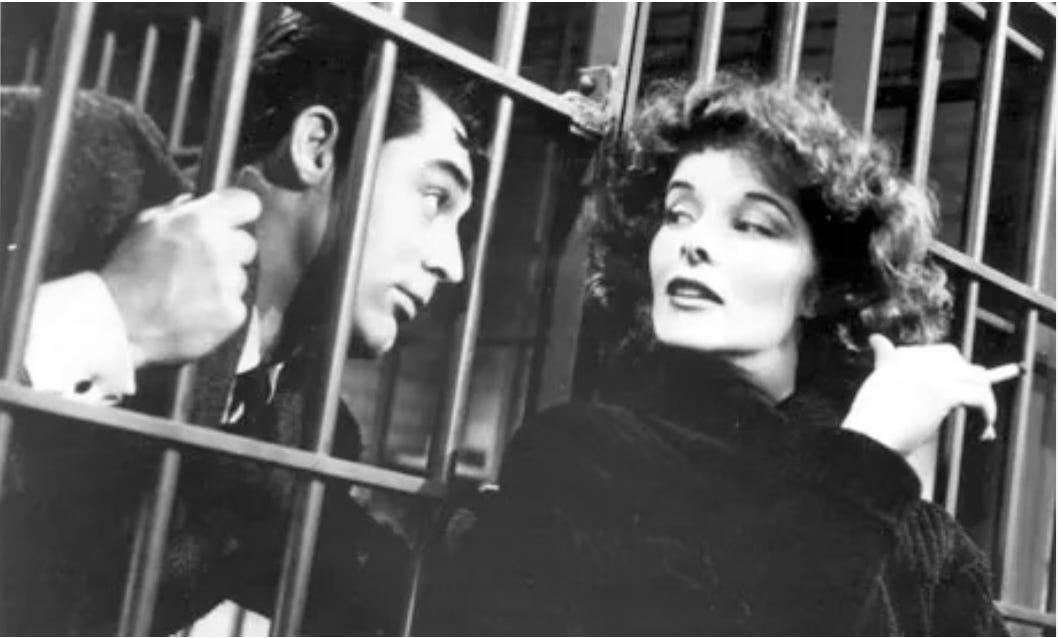The Wolf and Nothing but the Wolf
When the wolf is needed, the wolf will appear.
My neighbor exclaimed that she saw a coyote cross the road as we met walking our dogs—there is culvert and thick woods on either side of it there, and so wholly plausible—and while I suggested that maybe she was being dramatic (a tired but irresistible thing to say to a theater professor), of course I believed her.
There’s a reason the feral cat population isn’t what it used to be.
When the wolf is needed, the wolf will appear.
Human effort and ingenuity—if one had to distill them to one thing—are variations on the need to solve a conjuring problem.
It’s easy enough to start a thing. Given over to the pleasure of a dream, a desire, a lust, anticipation alone seems to build a supply line stocked with extant and ready materials, and what comes is carried forward on a momentum that, like a promise, full of hopeful conviction, tricks us into believing that God is on our side.
But vision is only visionary in its practice, and the secret to magical thinking is in constructing, or discovering (uncovering?) a flywheel for the image that taps an endlessly regenerative source of [whatever it takes] that, to use Hegel’s phrase, delivers “the manifestation of truth in sensuous form,” where truth is but a metonymy for [whatever works].
“Do not feed the wolf,” the therapist says. “Let it die.”
“In bocca al lupo”—Into the wolf’s mouth—we say to the one taking the stage.
“Crepi il lupo!”—Let it die!—says the actor in response.
Two choices, pick one.
Swerve from danger as if your life depends on it.
Charge at danger as if your life depends on it.
The poet Allen Grossman saw poetry as the artistic means of last resort but, to modify one of his famous definitions, many activities are enjoined for their potential to be a “principle of power invoked by all of us against our vanishing.”
The question, of course, is one of efficacy.
You find variations on this poetic principle, that a work of art is conceived under the directive of its materials. Louis Kahn: you say to the brick, what do you want? Anne Lamott: Listen to your broccoli and your broccoli will tell you how to eat it.
Like any good voyeur, an artist gets in the way of what is happening—the basic drive to influence and be exposed to influence, to be privy to the flow of what is essentially none of our business and make of it what one can.
The dramatic code: “I want, therefore I am.” — John Truby
“The best drama for me is one which shows a man in danger. There is no action when there is no danger. To live or die? What drama is greater?” —Howard Hawks
We crave to live a life that is a worthy story, yet habitually retreat from danger. We want to minimize all drama. In our therapeutic culture, is there any more tireless word doing yeoman’s duty than Safety?
What happens when one suspects one’s own motives, one’s own authority, one’s own knowledge—pedagogy becomes impossible. Punditry, criticism. Even comedy. Poetry: forget it. The outlines of myth, a more extractive form, possibly, remains, but the force necessary for its transmission withers into inconsequence. Why bother? If Bartleby the Scrivener did not exist we would yet need to invent him.
“What is really lacking in man today?” (Frank Lloyd Wright is asking)
“He lacks the certainty that comes with the creative life. He plays no creative role in life but by way of art, religion, and science. Lacking that inner certainty of life, he feels insecure. We all walk and talk in insecurity. Only a creative life can make a man really free. He is absolutely an apostle for life because he sees nature for life.
An excerpt from “The Wolfs Eyelash,” by Clarissa Pinkola Estés, which appears at the end of her seminal work:
If you listen closely, the wolf in its howling is always asking the most important question—not where is the next food, not where is the next fight, not where is the next dance?—”
but the most important question
in order to see into and behind,
to weigh the value of all that lives,
wooooooooor
“aieeeee th’
soooooooool?
wooooooooor
aieeeee
th’soooooooool?
Where is the soul?
Where is the soul?
Go out in the woods, go out. If you don’t go out in the woods, nothing will ever happen and your life will never begin.
When the wolf is needed, the wolf will appear.
You know how to whistle, don’t you?




See you in the woods!
I do know how to whistle, do you?